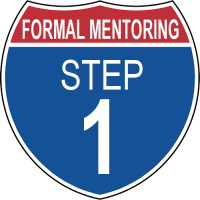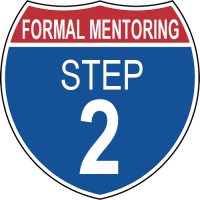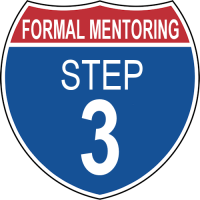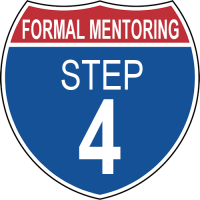(Created page with " == Overview == right This information is intended for those considering '''Formal Mentoring''' and as reference for those who are already i...") |
|||
| Ligne 283 : | Ligne 283 : | ||
Those editors responsible for managing, developing, and growing the Formal Mentoring program are listed here. Contact them if you have ideas, issues, or questions about the program. | Those editors responsible for managing, developing, and growing the Formal Mentoring program are listed here. Contact them if you have ideas, issues, or questions about the program. | ||
* [[User: | * [[User:Milkyway35|MilkyWay35]], [http://www.waze.com/forum/ucp.php?i=pm&mode=compose&subject=Re:%20Question%20Mentorat%20Formel&username=milkyway35 envoyer un message] | ||
<!-- Place all page content above this line. --> | <!-- Place all page content above this line. --> | ||
Version du 8 juillet 2014 à 13:27
Overview

This information is intended for those considering Formal Mentoring and as reference for those who are already in a Formal Mentoring relationship. As a guideline, it should help you decide if Formal Mentoring is right for you and provide both Mentors and Mentees a better understanding of approach and options. You may choose to utilize only parts of this guideline or add other approaches that suit your needs.
| Formal Mentoring is a one-on-one interaction between a Mentee and an officially approved Waze Mentor with a defined objective, duration, and under a common set of rules, with the purpose of accelerating advancement of editor rank and roles while maintaining quality of editing and Waze Community interaction. |
For general information and information on Informal Mentoring, see the France Mentoring Page.
Background
This set of guidelines is the basic core element of the Waze Formal Mentoring effort in the France. It was created by researching a number of existing mentoring programs from industry, personal experience of the primary author in conducting mentoring within the workplace, and adapted with knowledge of the Waze Community and their objectives. The word "Formal" was added to create "Formal Mentoring" only as a way to distinguish this effort from the broad set of mentoring important efforts, of one Wazer helping another, that go on within the Waze community every day. That "Informal Mentoring" is essential to the Waze community, but is different than Formal Mentoring.
This core set of guidelines can be applied independelly of any process or managment structure that creates a Formal Mentoring Program. Therefore it can be used by individuals wanting a more formal agreement to mentoring. It can also be applied to create a mentoring program in another region or country.
Formal Mentoring Approach
Consider a Formal Mentoring approach as four steps that you can take in sequence. Review all the steps before you actually decide to participate in Formal Mentoring as a Mentee or Mentor.
Step 1: Do you want to be mentored or be a mentor?

Before you ask to be mentored (become a Mentee), or to become a Mentor, consider if this is the right approach for you.
Potential Mentees: Have you already read the Wiki? Have you looked through the Forum to see what topics make sense and engaged in conversation there?
Potential Mentors: Do you have enough time and patience to mentor others? Do you know what Waze skills you’d like to teach to others? Consider the benefits, responsibilities, and decisions below before you engage in mentoring.
Benefits
| Benefits for the Mentee: | Benefits for the Mentor: |
|
|
Responsibilities
| Responsibilities of the Mentee: | Responsibilities of the Mentor: |
|
|
Commitment
| Decisions of the Mentee: | Decisions of the Mentor: |
|
|
Step 2: How do I find a Waze Mentor or become a Mentor?

If you are comfortable with the ideas in Step 1, then you need to find a Mentor or Mentee, enter into an agreement, and start participating. Here's how:
First: Identify candidates or make yourself available as a Mentor
| Mentee: Finding a Mentor | Mentor: How to become a Mentor |
|
|
Second: Find a match and make an agreement
Not every potential Mentee-Mentor combination will work. Mentees might have to ask several people in sequence to be mentored until they find the right person. A particular Mentor may not have a compatible schedule with the Mentee or might already have a number of other Mentees they are helping.
| Mentee: Agreement with a Mentor | Mentor: Agreement with a Mentee |
|
|
| Both Mentee and Mentor | |
| |
Step 3: Ideas about how to engage in Mentoring Relationship

Once you are in a formal Mentee-Mentor pair, then you need to plan, start, and achieve your objectives to complete your mentoring.
Beyond technical engagement with your Mentor-Mentee relationship, you may want to build trust by talking about other topics, interests, and experiences that surround your involvement in Waze. Your first interaction may be critical to make your relationship successful, so you might want to do it through live online chat, a voice call, or video chat where a relationship can be established. Remember that email and other asynchronous communication can be more subject to misinterpretations. In your first interaction, you should talk about:
- Both your backgrounds and interests surrounding your involvement in Waze
- Mentoring expectations for both
- Time commitment during mentoring and how long it will last
- There are many ways to engage in mentoring sessions. Some may be right for your partnership, others may not. You may wish to mix and match these to meet your needs:
- Private Messages (PMs)
- Personal Email
- Forum topic dialogue
- Live chat (e.g., Google Hangouts, IM, etc.)
- Video chat (e.g., Google Hangouts, Skype, etc.)
- Telephone conversations
- In-person meetings
| Mentee Dos | Mentor Dos |
|
|
| Dos for Both Mentee and Mentor | |
| |
| Mentee Don'ts | Mentor Don'ts |
|
|
| Don'ts Both Mentee and Mentor | |
| |
Step 4: Completing the Mentoring relationship

After you achieve your objectives, you're not done! Consider the following items.
Depending on the objective of mentoring, it’s scope, and intensity of interaction, it is a good idea to specifically communicate that your mentoring relationship is over so that both of your expectations are clear. This does not prevent future interactions or even another formal mentoring arrangement. Either party of the mentoring relationship can suggest to the other when they no longer need to participate, or can no longer participate for other reasons, such as lack of time they can commit. It is always good to have a final interaction through messaging or live to close out the mentoring relationship.
| Mentee: Completing the relationship | Mentor: Completing the relationship |
|
|
| Both Mentee and Mentor | |
| |
What happens if things don't work out?

As suggested above, there are a number of reasons why a Formal Mentoring arrangement may come to an end. We hope that the primary reason is that the Mentee has achieved their goals. In some cases things may go wrong because we have competing priorities and different personalities. Rather than harbor concern about what went wrong, try to solve and move past the issue and move forward. Here are some suggestions about what is reasonable and options you may have.
- Mentor is no longer available (for any reason)
- The Mentor should seek to find a replacement Formal Mentor. If that doesn't happen, the Mentee should seek to find another Formal Mentor. The previous and new Formal Mentor should evaluate if the prior work and skill set warrant any rank or role change. Mentee and new Formal Mentor should work on new goals and agreement.
- Mentee can no longer participate (for any reason)
- Mentee should inform their Formal Mentor rather than just abandon the relationship. It is up to the Formal Mentor to decide if there was sufficient progress for any rank or role adjustment. Temporary rank or role adjustments may be revoked at the Formal Mentor's discretion.
- Mentee abandons Formal Mentoring (for any reason)
- Should a Mentee abandon Formal Mentoring for any reason such as becoming unavailable, not communicating at all or insufficient for the Mentor's needs, then the Mentor will indicate via a message that the Formal Mentoring arrangement has been terminated. This assumes that the Mentor has taken reasonable effort to contact the Mentee. Hopefully the agreement outlined the frequency of communication that would be expected. In such cases there is typically no rank or role adjustment and any temporary adjustments are revoked. It is less likely that this editor will be accepted into Formal Mentoring in the future.
- Personality Conflict between Mentee and Formal Mentor
- Sometimes, no matter how hard we try, conflict can occur between two people due to personality or value differences. While we seek flexibility in both the Mentor and Mentee, sometimes it doesn't work out. In that case the team should be honest about the disagreement. The Mentor should help the Mentee seek another Formal Mentor. The Mentee may have to do this on their own if the Formal Mentor does not help. A third party should be contacted to mediate, and determine if the Mentees rank and role should be adjusted, and whether any temporary promotions should be revoked. This should be handled by those managing the Formal Mentoring program. If they are unavailable or partial to the subject, they will assign another Global Champ Mentor. If you feel the Mentor has acted inappropriately see below."
- Poor behavior by the Formal Mentor
- We do try to train and mentor our Formal Mentors! It is possible that they could overstep their authority, impose upon or insult the Mentee, or otherwise misbehave in their role as a Formal Mentor and editor. This will not be tolerated in the Formal Mentoring program. In such cases the Mentee should seek to deflate the conflict, reduce communication, and immediately seek help from those managing the Formal Mentoring program. Mentees may also seek advice from and inform a trusted Global Champ. If you feel comfortable doing so, please contact those managing the Formal Mentoring program. Let these people deal with the situation so you don't have to engage in conflict. Be prepared to clearly articulate the issue and present evidence of the issue. If validated, such behavior could lead to removal of Formal Mentor status or other actions as decided upon by the Global Champs or Waze staff.
- Poor behavior by the Mentee
- The Formal Mentor should first start by professionally confronting the poor behavior as an issue in useful involvement in the Waze Community and incorporate learning into the Formal Mentoring about such issues. Poor behavior may include but is not limited to blatant repeated errors in editing that damage the map, not following Formal Mentor direction with an intent to frustrate, repeated rude behavior to others in the Waze Community, and intentional disrespect to the Formal Mentor. In such cases the Formal Mentor is expected to clearly articulate the issue and present evidence to other Champs for discussion and advice. Such behavior could result in ejection of the Mentee from the Formal Mentoring program and other appropriate steps as needed such as revocation of editing privileges.
Formal Mentoring Managers
Those editors responsible for managing, developing, and growing the Formal Mentoring program are listed here. Contact them if you have ideas, issues, or questions about the program.